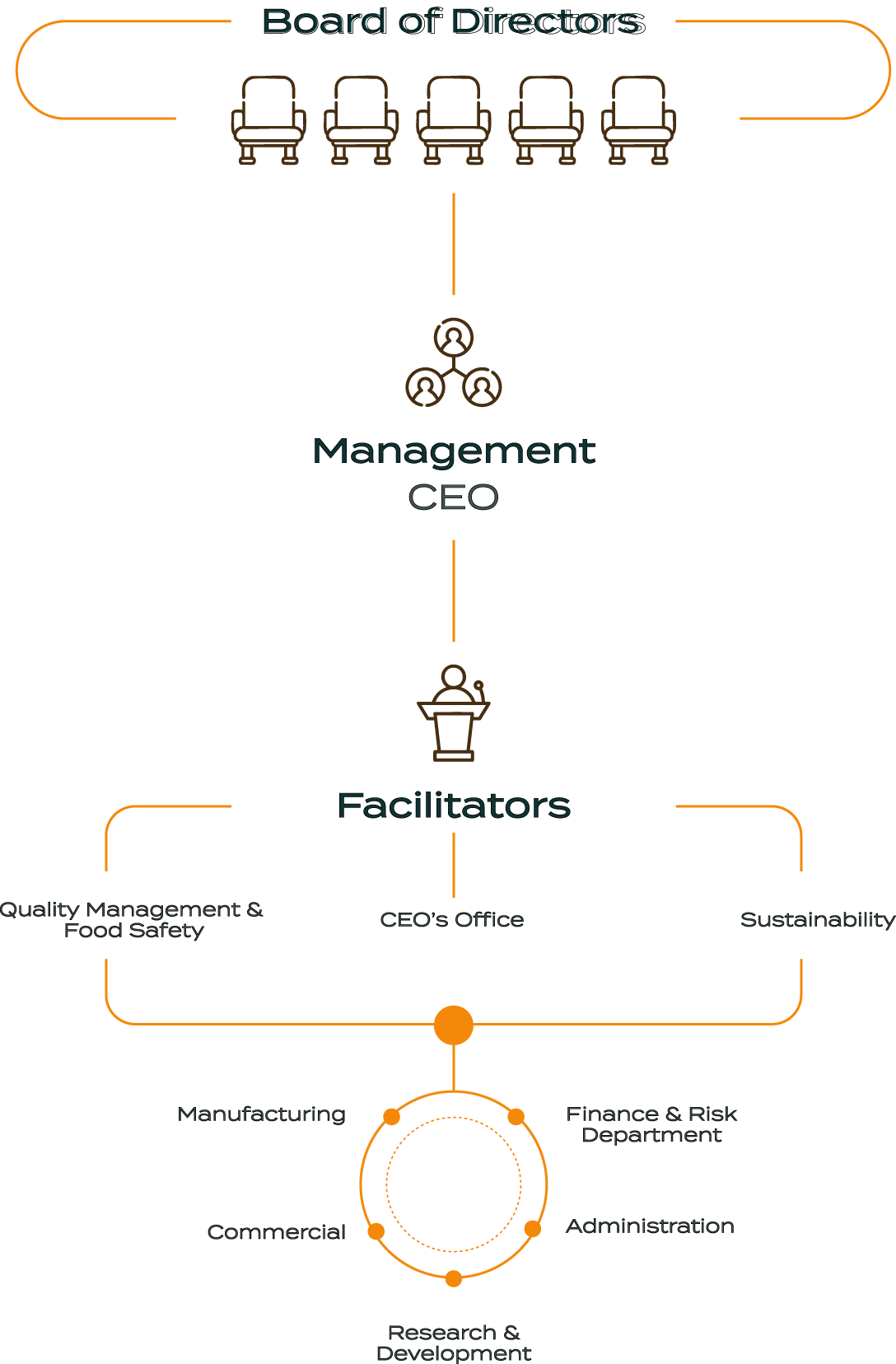About Climate Action
Accelerating Climate Action for a Sustainable Future
Organizations worldwide are committing to emissions reduction targets to collectively mitigate environmental impacts and promote sustainability.
At ISF, we are intensifying our efforts to combat climate change by aligning our operations with Environmental, Social, and Governance (ESG) principles. We are focused on reducing our emissions, targeting a 50% reduction in Scope 1 and 2 GHG emissions by 2030, using 2019 as the baseline. Additionally, we aim to cut Scope 3 GHG emissions by 25% from our 2020 baseline. These ambitious targets drive us to develop actionable strategies, ensuring we contribute meaningfully to a sustainable future for all.

Climate Action Roadmap
We developed our Climate Action Roadmap in early 2023 after reviewing our current climate practices and a comprehensive scenario analysis. It follows the four thematic pillars of the TCFD Recommendations and will guide and influence ISF’s business objectives and long-term strategic direction. We advocate for national climate policies that advance the Paris Agreement on Climate Change to limit global temperature increases to well below 2°C, and ideally no more than 1.5°C above pre-industrial levels. We believe businesses have an important role to play in taking decisive action to fight climate change.
ISF’s Climate Action Roadmap
Task Force on Climate-Related Financial Disclosures (TCFD)
ISF adopted the TCFD framework and released a Statement of Support for TCFD in May 2022, aligning with our parent company’s declaration in supporting the disclosure. ISF aims to utilise the TCFD to:
- Enhance transparency and address climate-related risks and opportunities beyond compliance requirements
- Understand the potential financial implications associated with transitioning to a lower-carbon economy and climate-related physical risks.
ISF’s alignment with the TCFD


Alignment with the TCFD
Governance
ISF's sustainability governance is led by the ESG Committee overseen by the Deputy CEO and reported to the Board of Directors. The ESG Committee, with departmental support, develops and drives sustainability strategies, policies, and targets related to material environmental, social, and governance issues.
ISF ESG Committee Organisation Chart

Alignment with the TCFD
Strategy
Climate-related risks such as floods, droughts, and other natural disasters could disrupt raw material supply.
In 2022, we used a scenario analysis tool to conduct qualitative and quantitative climate modeling across our value chain. We identified climate-related transitional risks and opportunities and integrated them into the risk management framework to evaluate the financial implications.
The evaluations are used to develop our Climate Action Plan and address our upcoming challenges, including the key strategies highlighted below.
ISF’s Climate-related Strategies

Reducing emissions from our operations
- Mapping our carbon footprint and establishing baselines for Scope 1, 2 and 3 GHG emissions.
- Drive operational efficiency through process improvements and equipment upgrades; investing in energy-efficient technologies and innovations, e.g. heat and power cogeneration systems.

Promoting a low carbon value chain
- Supporting suppliers in lowering their own emissions.
- Prioritising sustainable procurement for a low carbon value chain.

Expanding our uptake of renewable energy
- Installing solar energy systems to generate renewable energy on site.
- Purchasing renewable energy certificates to replace electricity sourced from the grid (e.g. through the Green Electricity Tariff or Virtual Power Purchase Agreements (VPPA))
- Exploring opportunities to integrate renewable energy into refinery processes.

Exploring nature-based approaches
- Supporting nature-based solutions, e.g. mangrove rehabilitation for carbon sequestration while restoring biodiversity and promoting social well-being.

Increasing impact through partnerships and collaborations
- Engaging with local communities to implement climate mitigation or adaptation solutions, e.g. collaboration with the Global Environment Centre (GEC) and the community of Kampung Dato Hormat for our Mangrove Rehabilitation Programme.
Alignment with the TCFD
Risk Management
ISF conducted a quantitative climate change assessment to identify transition and physical risks.
Integrated climate change into our overall risk management framework and regularly review its impacts
Our periodic assessments encompass all environmental, social, and governance (ESG) matters, with a specific emphasis on climate change.
Collaboration with all of ISF’s departments
We work collaboratively across all levels of the company to assess and address these risks, while frequently reviewing and monitoring our sustainability impacts, including at the Board of Directors level.
Alignment with the TCFD
Metrics and Targets
In line with our parent company, The Nisshin OilliO Group, Ltd's environmental targets, we aim to reduce our GHG emissions by 50% by 2030 and achieve carbon neutrality in ISF’s facilities and operations by 2050. Our GHG accounting adheres to the globally recognised Greenhouse Gas Protocol: A Corporate Accounting and Reporting Standard (Revised Edition).
We track key metrics and report against climate-related targets regularly and disclose the following climate-related metrics consistent with TCFD’s Guidance on Metrics, Targets, and Transition Plans.
Carbon neutrality
By 2050
WE TARGET BY 2030 TO REDUCE
50%
GHG Scope 1 & 2 emissions
(Against year 2019 baseline)
25%
GHG Scope 3 emissions
(Against year 2020 baseline)
10%
Waste generation intensity
10%
Water consumption intensity
10%
Energy intensity
(The targets above are benchmarked against the year 2019 baseline)




